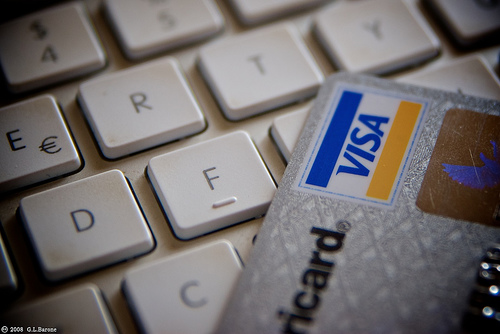Are you struggling with bad credit and can’t figure out why? You’re not alone. There are several sneaky factors that lower your credit; simple things like applying for new credit or closing a credit card account can cause serious damage your credit score. Read the following 12 things that can also hurt your credit while appearing seemingly harmless.
1. Late Payments
Because your payment history equates to 35% of your credit score, frequent late payments on credit card bills can greatly damage your credit score.
2. Avoiding Payments on Parking Tickets
Many places in the U.S. send all unpaid parking tickets to collection agencies. The larger your account grows with collection agencies, the more damage is done to your credit.
3. Requesting an Increase on Your Credit Limit
Though requesting an increase may help your credit in the long run, it can cause serious damage to your short-term credit if it initiates a serious inquiry into your credit.
4. Renting a Car with a Debit Card
If you choose to pay for a rental car deposit with a debit card, the rental company had the right to pull your credit report. This causes a hard inquiry of your credit and can ultimately lower your score a few points.
5. Defaulting on a Loan
Loan defaults, which are similar to credit card charge-offs, prove that you have not upheld your end of the loan contract and will likely hurt your credit.
6. Maxed Out Credit Cards
Over-the-limit or maxed out credit card balances equate to 100% of your credit utilization and can be, perhaps, the most damaging thing you can do to your credit.
7. Financing a Major Purchase
Some credit companies consider financing large items like furniture or electronics a “last-resort loan” which can be a red flag for creditors: it makes you look like a risky client.
8. Foreclosing on Your Home
If you fall behind on mortgage payments, your loan lender will likely foreclose on your home. These late payments will not only damage your credit score, but it can also make future mortgages hard to get.
9. Getting a New Mobile Phone
Opening a new cell phone account can initiate a hard inquiry into your credit and, along with other hard credit inquiries, can drop your credit score.
10. Getting a judgment
Getting a judgment demonstrates that you not only avoided your bills but that payment on the debt required the intervention of the courts.
11. Disputing a Credit Card Bill
Many credit companies don’t take disputed credit lines into account when calculating your score, which, if a credit check were to occur during the time of dispute, could show your score as lower than typically normal.
12. Unused Credit Cards
If your account appears inactive over a long period of time, your creditor could elect to close your account on the basis of inactivity. This is bad for your score because it damages your credit utilization ratio.
For more information on how to improve your credit score, visit Lexington Law Reviews. Here you will find useful advice, tips and tricks on how to avoid damaging your credit and how to improve a poor score.
photo credit: E-Commerce Visa (Test tamron 17-50 2.8) via photopin (license)
photo credit: Blue Piggy Bank With Coins – Retirement via photopin (license)


Recent Comments